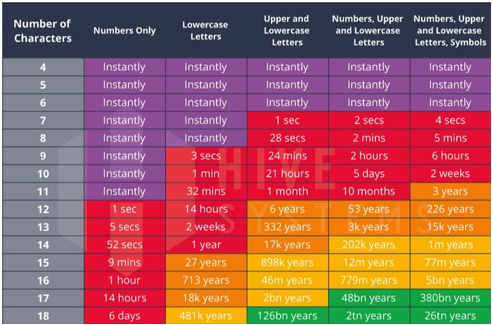By David Gracey
I am an engineer and solving problems is what I do. Healthcare insurance is a mess right now and there are a lot of problems with it, most of which I won’t solve in 1,200 words, but I’m going to offer a solution to one big problem that no one is talking about. Writing this article could cost my company a lot of money. You see, Network 1 has very low health insurance premiums and implementing my solution would likely raise our rates. And it will fix the insurance market.
Like most small businesses, our company is in our very own “risk pool” which is a group of people made up exclusively of Network 1 employees and their families. The information technology industry is populated mostly by men who, in many cases, are under 30. Younger males have the lowest healthcare expenses. They tend to be healthier and need (or at least use) less medical care than others. So Network 1 has a risk pool that consumes very little health care compared to the general population and we benefit by having significantly lower rates.
 In 2010, Democrats passed Obamacare by the narrowest of margins. The Affordable Care Act was signed by President Obama, became law and has survived several attempts at being struck down by the Supreme Court. I’m not here to argue the pros (there are many) and cons (there are many) of the law, but most will agree the ACA has done little to keep the cost of healthcare low. We did not “bend the curve.” Now Republicans are the “dog that caught the car” and are forced to put up or shut up on healthcare reform. It’ll be fun to watch the drama.
In 2010, Democrats passed Obamacare by the narrowest of margins. The Affordable Care Act was signed by President Obama, became law and has survived several attempts at being struck down by the Supreme Court. I’m not here to argue the pros (there are many) and cons (there are many) of the law, but most will agree the ACA has done little to keep the cost of healthcare low. We did not “bend the curve.” Now Republicans are the “dog that caught the car” and are forced to put up or shut up on healthcare reform. It’ll be fun to watch the drama.
I’m not going to address making healthcare “more affordable” (which is NOT the same as lowering healthcare costs). “Affordability” has zero to do with lowering healthcare costs. It is simply code for figuring out how to subsidize insurance premiums (and who will pay for it) and reducing out-of-pocket expenses. Liberals and conservatives can debate the merits of expanding Medicare or providing tax credits all they want. I’m not here to do that today.
I’m also not going to address the nature of health insurance itself. Insurance, in any other market beside healthcare, is intended to protect against catastrophic failures: events that cost enough to bankrupt a family or deplete hard-earned savings. These include events such as a natural disaster that destroys your home or an accident that totals your car. You don’t file an insurance claim when a baseball flies through your home window or when you take the car in for an oil change. Why would you use insurance to pay for a routine doctor visit that costs $100?
What I am here to address is a fact that no one seems to be discussing: employer-paid health insurance has wrecked the healthcare insurance market.
 We can fix the rapidly rising cost of healthcare in this country. The reasons for annual double-digit increases in healthcare costs are numerous, including expensive malpractice insurance doctors must carry, defensive medicine whereby doctors order unnecessary and expensive tests to protect themselves from lawsuits and the high cost of bringing pharmaceuticals to market. But nothing has been more destructive to the free market-based system of consuming healthcare than employer-paid insurance. And employee-paid health insurance has the easiest, least costly and least disruptive solution that offers the best and most significant impact on reining in costs. First a bit of history and how we got here.
We can fix the rapidly rising cost of healthcare in this country. The reasons for annual double-digit increases in healthcare costs are numerous, including expensive malpractice insurance doctors must carry, defensive medicine whereby doctors order unnecessary and expensive tests to protect themselves from lawsuits and the high cost of bringing pharmaceuticals to market. But nothing has been more destructive to the free market-based system of consuming healthcare than employer-paid insurance. And employee-paid health insurance has the easiest, least costly and least disruptive solution that offers the best and most significant impact on reining in costs. First a bit of history and how we got here.
In the 1940s, employers began offering richer benefits to attract employees and get around the World War II wage caps. Back then, more doctors and hospitals relied on cash payments, not insurance reimbursements, for service. Times have changed. Today, employers are expected to provide health insurance. Why? Because the individual insurance market is dysfunctional and expensive. Good, talented employees are hard to land without this benefit. This model of small group pools is inefficient. Workers are the ones who bear the costs in the form of lower wages. Asking companies to pay for health insurance completely neutralizes the power of the free market system to keep costs in check. Free markets work best when the consumer of a product is also the purchaser of the product. Health insurance destroys that model, and having the employer pay for the premiums only compounds the problem.
 At Network 1, we use matching Health Savings Accounts (HSA) to empower our employees to make good decisions about their healthcare. If someone has a cold, he can pay $100 to see a doctor (who usually won’t prescribe anything that actually works because colds usually just need to run their course) or he can keep the $100 to use for something else like Disney trips, books or bourbon. Or save for retirement. It’s his choice! Once our employee hits the $2,500 deductible, insurance kicks in and the employee pays a small co-pay for doctor visits and prescription drugs. We use insurance as it’s supposed to be used: to protect families against catastrophic financial disasters. And we share the savings by matching the employee’s HSA contributions. We don’t provide auto insurance for our employees. It is ridiculous that we must provide medical insurance. Our CFO would much rather pay our employees in higher salaries the same amount that we pay for their insurance premiums.
At Network 1, we use matching Health Savings Accounts (HSA) to empower our employees to make good decisions about their healthcare. If someone has a cold, he can pay $100 to see a doctor (who usually won’t prescribe anything that actually works because colds usually just need to run their course) or he can keep the $100 to use for something else like Disney trips, books or bourbon. Or save for retirement. It’s his choice! Once our employee hits the $2,500 deductible, insurance kicks in and the employee pays a small co-pay for doctor visits and prescription drugs. We use insurance as it’s supposed to be used: to protect families against catastrophic financial disasters. And we share the savings by matching the employee’s HSA contributions. We don’t provide auto insurance for our employees. It is ridiculous that we must provide medical insurance. Our CFO would much rather pay our employees in higher salaries the same amount that we pay for their insurance premiums.
So I’ve finally worked my way to the headline: it is time to get rid of employer-sponsored health plans. Imagine this: NO employers offer their employees health insurance. (OK, count to ten…I’ll wait…now exhale.) Instead, they pay more in salary so employees can shop for the best insurance plan for their family. Overnight, the individual insurance market would drastically improve and insurance companies would compete fairly for the business by offering a variety of options: basic to Cadillac. The plans would, over time, get easier to understand and competition would keep prices down. It would be as easy as shopping for car insurance. (“Stuart saved $800 by switching to Geico Medical!”)
Here’s the problem: Network 1 must continue to provide health insurance as long as our competitors do. Otherwise, we can’t compete for good employees. To solve this, a law would need to be passed to require gradually phasing out employer-paid plans.
Another benefit: Employees would no longer feel obligated to stay at their current company in order to keep their benefits. Their insurance goes with them. What a concept!
Employer-paid health insurance has been one of the biggest contributors to soaring health care costs. It is time to break the bond between companies and health insurance. Let the power of capitalism, the greatest economic force in the history of the world, be unleashed to fix this mess.
Network 1 Consulting is an 18-year-old, IT Support company in Atlanta, GA. We become – or augment – the IT department for law firms and medical practices. Our IT experts can fix computers – but what our clients really value are the industry-specific best practices we bring to their firms. This is especially important with technology, along with regulations and cyber threats, changing so rapidly. We take a proactive approach to helping our clients use technology to gain and keep their competitive advantage.






